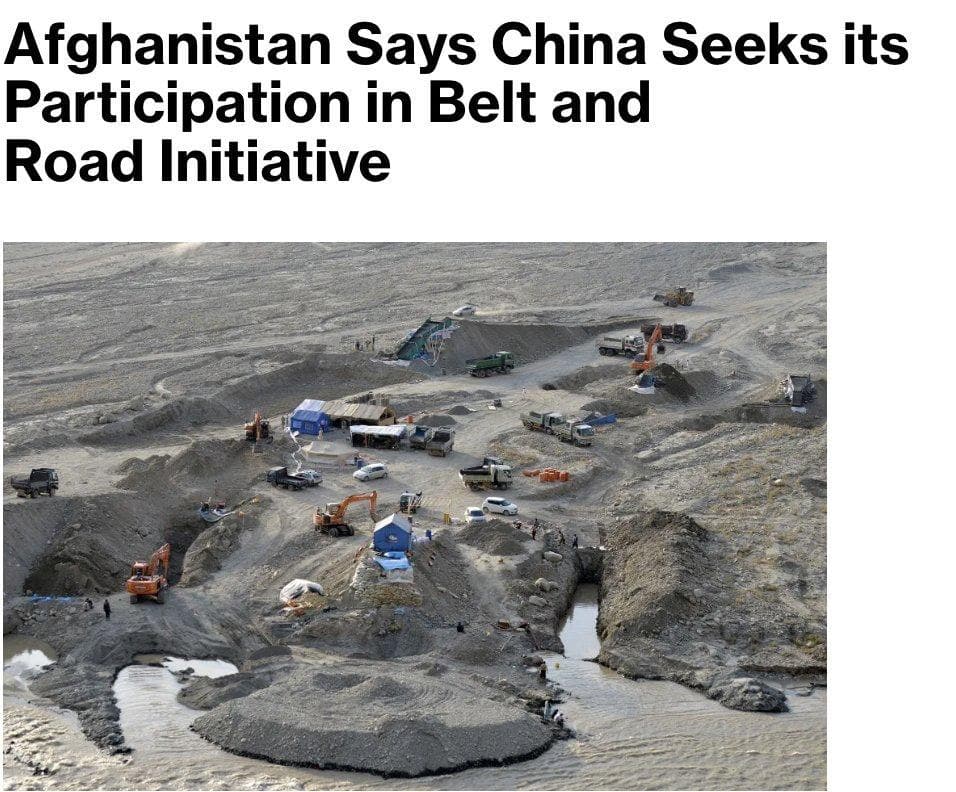Breaking: Afghanistan Confirms China"s Invitation to Join Belt and Road Initiative
In a significant development for international relations, Afghanistan has confirmed that China has extended an invitation for the country to participate in its ambitious Belt and Road Initiative (BRI). This announcement was made earlier today, highlighting China"s ongoing efforts to expand its influence in Central Asia and beyond, amidst a backdrop of geopolitical shifts and economic challenges.
The Belt and Road Initiative: An Overview
The Belt and Road Initiative, launched by China in 2013, aims to enhance global trade and stimulate economic growth across Asia and beyond by developing trade routes reminiscent of the ancient Silk Road. The initiative seeks to connect China with Europe, Africa, and other parts of Asia through a network of infrastructure projects, including roads, railways, and ports. Currently, over 140 countries are involved in the BRI, with varying degrees of participation and investment.
Afghanistan"s potential inclusion in this initiative could open avenues for much-needed economic development. The country, which has faced decades of conflict and instability, is in dire need of infrastructure improvements and foreign investment. According to recent reports, Afghanistan"s economy is projected to grow by only 1.5% this year, underscoring the urgency of international partnerships.
Why Afghanistan"s Participation Matters
Afghanistan"s participation in the BRI could have profound implications for its economic future and regional stability. The initiative could facilitate the construction of critical infrastructure, such as roads and energy projects, which are essential for fostering trade and improving living standards. In a statement, Afghanistan"s Minister of Foreign Affairs emphasized the importance of this opportunity, stating, "Joining the Belt and Road Initiative is a step towards revitalizing our economy and integrating into the global market."
Moreover, the move could signal a shift in Afghanistan"s foreign relations, particularly as the Taliban government seeks to establish legitimacy and attract investment. China"s involvement may also serve as a counterbalance to Western influence in the region, further complicating an already intricate geopolitical landscape. Similar situations have been observed in countries like Pakistan, where the China-Pakistan Economic Corridor has led to significant investments and infrastructural advancements.
What Happens Next?
As Afghanistan considers its participation in the Belt and Road Initiative, several next steps are anticipated. Diplomatic discussions between Afghan officials and Chinese representatives are expected to intensify, with a focus on outlining specific projects and investment terms. Analysts suggest that Afghanistan may prioritize sectors such as energy, transportation, and telecommunications to maximize the benefits of the partnership.
Additionally, the international community will be closely monitoring this development. The ramifications of Afghanistan"s engagement with China could influence global trade dynamics and regional security. As previously reported, the geopolitical landscape is rapidly evolving, with nations reassessing their alliances and strategies in light of recent developments, such as Ukraine"s increased drone production targeting Russia.
In conclusion, Afghanistan"s invitation to join the Belt and Road Initiative represents a pivotal moment for the nation, offering potential pathways for economic recovery and international cooperation. As discussions progress, the implications of this partnership will unfold, shaping the future of Afghanistan"s role on the global stage.


![[Video] Heavy clashes and gunfire reported in Baghdad, Iraq](/_next/image?url=%2Fapi%2Fimage%2Fthumbnails%2Fthumbnail-1768342239932-848qsh-thumbnail.jpg&w=3840&q=75)




![[Video] Gunfire between Iraqi security forces and Sadr militias in Baghdad](/_next/image?url=%2Fapi%2Fimage%2Fthumbnails%2Fthumbnail-1768343508874-4redb-thumbnail.jpg&w=3840&q=75)
